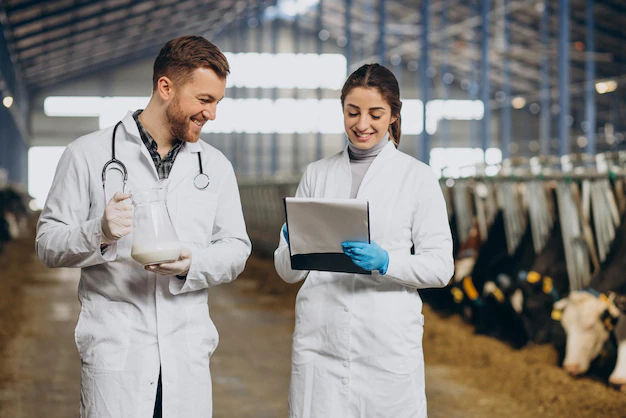- Essential Skills: Dairy farming requires a combination of practical skills and knowledge. Some key skills include animal care and handling, knowledge of herd management practices, understanding of milk production and quality control, and basic veterinary skills.
- Daily Responsibilities: A dairy farmer’s typical daily tasks include milking cows, feeding and watering the animals, cleaning and maintaining barns and equipment, monitoring the health and well-being of the herd, breeding and calving assistance, and managing milk production and storage.
- Long Hours and Physical Demands: Dairy farming is a labor-intensive job that often requires long hours and early mornings. Milking cows usually takes place twice a day, and the work can be physically demanding, involving lifting heavy objects and working outdoors in various weather conditions.
- Animal Welfare: Dairy farmers are responsible for the health and welfare of their cows. This includes ensuring that the animals have proper nutrition, comfortable housing, and access to clean water. They also monitor and address any signs of illness or injury promptly.
- Business and Financial Management: Dairy farming is not just about caring for animals; it also involves managing a business. Farmers need to understand financial management, budgeting, record-keeping, and marketing strategies to ensure the profitability and sustainability of their operations.
- Knowledge of Breeding and Genetics: Successful dairy farmers have a good understanding of animal breeding and genetics. They may work with veterinarians or breeding specialists to select and breed cows that will produce high-quality milk and improve the overall genetics of their herd.
- Environmental Stewardship: Dairy farmers are increasingly focused on sustainable farming practices and environmental stewardship. They implement strategies to manage manure and nutrient runoff, conserve water, and reduce energy consumption. Many farmers are adopting technologies like anaerobic digesters to generate renewable energy from cow manure.
- Regulatory Compliance: Dairy farming is subject to various regulations and standards related to food safety, animal welfare, environmental protection, and labor laws. Farmers must stay informed about these regulations and ensure their operations comply with all relevant laws.
- Continuous Learning: Dairy farming is an evolving industry, and successful farmers stay updated with the latest research, technologies, and best practices. They attend workshops, conferences, and training programs to enhance their knowledge and skills.
- Rewarding Lifestyle: Despite the challenges, many dairy farmers find their work highly rewarding. They have a strong connection with their animals and the land, and take pride in producing a nutritious and essential food product. Dairy farming can offer a unique and fulfilling lifestyle for those passionate about agriculture and animal husbandry.
Join 'Farmers Mag' WhatsApp Channel
Get the latest Farming news and tips delivered straight to your WhatsApp
CLICK HERE TO JOIN






